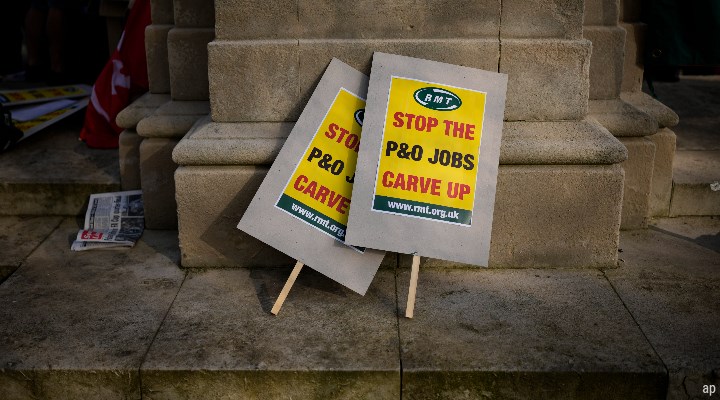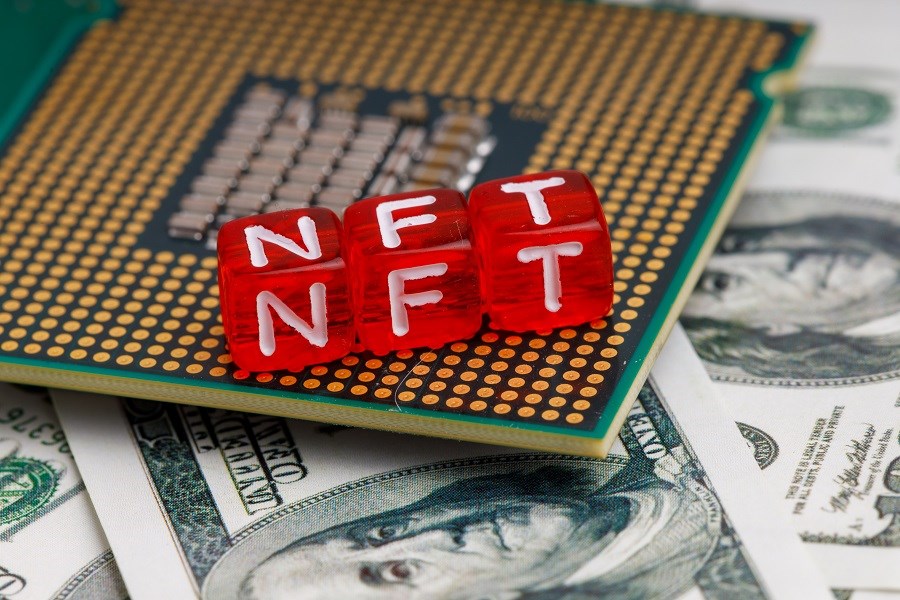
As Ukraine marked one month of war, the cost of living continued to bite for many, and there were no easy political answers to the problem.
This MP Knows How to Ask a Loaded Question
Summoned to parliament to explain his company’s decision to sack 800 staff on the spot and replace them with cheaper labour, P&O chief executive Peter Hebblethwaite faced possibly the toughest opening question ever put to a business boss by a committee this week. Business, Energy and Industrial Strategy committee chair Darren Jones got straight to the point when he asked Hebblethwaite: “When I was reading your biography, it seemed pretty light on your experience as a chief executive officer. Are you in this mess because you don’t know what you’re doing, or are you just a shameless criminal?” Facing a stunned room, Hebblethwaite appeared to admit P&O had consciously neglected to consult unions before announcing the move, contrary to the Trade Union Act of 1992. Those listening to the remarkable confession were less than impressed.
“Uncertainty” is Word of the Week
As chancellor Rishi Sunak stood at the dispatch box to deliver his Spring Statement on Wednesday, the Office for Budget Responsibility (OBR) was publishing its latest economic and fiscal outlook. The word “uncertainty” appeared 55 times in the document, which noted the biggest fall in living standards in the UK since, erm, the 1950s. As that was happening, fund house Janus Henderson thought it the opportune moment to announce their new CEO. Not now Janus Henderson. Not now.
Even Martin Lewis is Out of Ideas
You can never underestimate the importance of Martin Lewis. The MoneySavingExpert boss has been frequently cited in Financial Conduct Authority consumer surveys as a more trustworthy source of information on money than even the most experienced financial adviser. You know it’s bad, then, when the nation’s most popular money spokesperson himself admits he is out of ideas to see off the spiraling cost of living. Speaking to the BBC’s Sophie Raworth, Lewis said he was “virtually out of tools” to assist people, and that the government would have to step in if it wanted more money savers to avoid a worst case scenario.
The War is Going to Last Many More Months
Buried in one of Morningstar’s detailed reports on the state of the tobacco industry was this startling assumption regarding the ongoing situation in Ukraine. Morningstar analysts now assume the conflict will last for at least another six months, during which time Ukraine’s tobacco production will be brought to a complete halt, and Russia’s own cigarette makers severely constrained by rouble weakness. We are now one month into the conflict, so check out data journalist Sunniva Kolostyak’s roundup of the four-week financial impact of the conflict as part of our coverage of the war.
We’ve Got Other Great Facts Too
You can trust Morningstar columnist John Rekenthaler to unpack investment issues properly, and this week was no different. This week, John took on the tricky topic of Chinese stocks, and compared the country’s economic expansion to that of the US. Then came this zinger of a fact: for every dollar of gross domestic product growth, American businesses accrued $1.70 of pre-tax profits. You can use that in your next wedding speech, provided of course the bride and groom are economists, and the audience isn’t already bored of your remarks about Evergrande.
Morningstar Isn’t Convinced About NFTs, Either
It’s been quite the week for Morningstar’s views on the news, then. Check out our piece on the rise of non-fungible tokens (NFTs), which we hope will help investors determine their own stance on the phenomenon of crypto-backed cultural assets. One person who isn’t entirely convinced is Morningstar Investment Management’s global chief investment officer Dan Kemp, who grounded his analysis of the NFT craze in an appreciation of just how quickly fashion trends can change, and the tempting but flawed world of antique furniture collecting. “The price of art is determined by fashions,” he cautions: “while some may be able to spot such fashions, most do not have this ability.” You may want to curb your enthusiasm.
Stagflation May be on The Horizon
Stagflation combines stagnating GDP growth, rising unemployment, and the spectre of rising inflation. Thankfully, the UK’s jobs numbers still look fairly robust, but there is certainly no room for complacency about growth or inflation. “Stagflation, an ugly mix of inflation and recession, is the fear stalking the markets right now and the longer the war rages, the more likely this scenario becomes,” says AJ Bell investment director Russ Mold. Given that the current situation in Ukraine was at the extreme end of a range of scenarios just a month ago, few are now willing to discount the possibility that things could get a lot worse before they get better. See our piece on the UK economy in six charts for more information.
Value Truly is on The Rebound
Value strategies are clearly outperforming growth ones across the board so far this year. In 2022 to March 16, the MSCI UK Value Index significantly outperformed the MSCI UK Growth Index – by more than 13.5 percentage points – and the picture is repeated further down the market-cap scale when comparing the respective mid- and small-cap indexes. So wrote senior editor James Gard in this excellent analysis of the value rotation, which features detailed lists of the all the fund strategies thriving on the rebound.
Risk Experts Are Now All The Rage
First the pandemic, and the resulting economic fallout; now the war. Both have handed risk management experts a real career boost, as companies large and small seek reassurance and advice regarding how they can best respond to crises. In the world we now live in, there is no such thing as a disaster on the other side of the world for companies whose supply chains stretch far and wide. And speaking of supply chains, we’ll have more on our revamped analysis of dividend-paying stocks shoring up their strategies amid the chaos in a video next week. Morningstar analyst Michael Field has devised a whole new framework for looking at the sustainability of European dividends, which themselves rely on robust supply chains, or, better still, no supply chains at all.
“Dumbphones” Are The New Thing
Nobody pretends for a second that the rise of so-called “dumphones” will put a dent in the profits of the world’s largest technology and device manufacturers, but their gradually increasing popularity is a trend worth noting nevertheless. This week it was revealed Google searches for mobile phones without smartphone capabilities had jumped 89% between 2018 and 2021, and, as if that wasn’t evidence enough of some form of backlash against smartphone dependency, one report suggests sales of dumbphones last year would hit the one billion mark, up by a whopping 600 million on the year before. It may take some time for us to get used to playing Snake on our Nokias again, but with all the other challenges we face, perhaps it isn’t such a big leap for us to shed our smartphone skin.





























